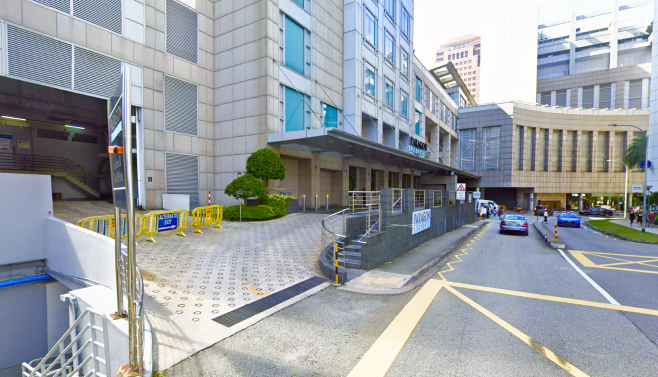The Safety Net
Bipolar Disorder Singapore
Senior Consultant Psychiatrist, Dr. Tan Sheng Neng
MMED (Psych), MBBS, MCI, FAMSBipolar disorder is a mental health condition that affects your mood, energy levels, attention and behaviour. It was previously known as manic depression. People diagnosed with Bipolar disorder experience episodes that can last from hours to months. If you have Bipolar disorder, you're likely to have times where you experience:
- Manic or hypomanic episodes, which means feeling “high”
- Depressive episodes, which mean feeling “low”
- Potentially some psychotic symptoms during manic or depressive episodes
What is Bipolar Disorder?
Bipolar disorder is a class of mood disorders marked by dramatic changes in mood, energy and behaviour. The mood disturbances are severe enough to affect the person’s ability to function.
The key characteristic of people with bipolar disorder is alternating between episodes of mania (significantly elevated mood) and depression (extreme sadness).
These different experiences are called mood episodes or states.
Mood episodes can range from severe depression to mania and anything in between. Sometimes your episodes may feel intense, and other times you may feel stable. And you may never experience certain mood episodes. Not everyone with bipolar disorder will experience mania.
Are you experiencing dramatic changes in mood, energy and behavior? If your experiences alternate between a significantly elevated mood and extreme sadness, you may have Bipolar Disorder.
Bipolar Disorder is a serious mental health condition that can get worse without proper treatment.
Get Started

Senior Consultant Psychiatrist
Dr. Tan Sheng Neng 
Dr Tan was the Director of Consultation-Liaison Psychiatry Service (2017-2019) at Changi General Hospital (CGH), Singapore. He was also an Assistant Director (Psych) of the Integrated Sleep Service at CGH (SingHealth Duke-NUS Sleep Centre), where he helped develop into a department in 2018.
- Master of Medicine (Psychiatry)
- Master of Clinical Investigation (MCI)
- Bachelor of Medicine and Bachelor of Surgery (MBBS)
- Fellow of the Academy of Medicine, Singapore (FAMS)
At present, besides the clinical work in his clinic and hospitals, Dr Tan also holds the following appointments:
- Clinical Advisor to Samaritans of Singapore (SOS)
- Lecturer to Executive Counselling and Training Academy (ECTA)
Dr Tan has a specialised interest in neuropsychiatry. He treats patients with Sleep Disorders, Mild Cognitive Impairment and Brain trauma or injury, particularly from strokes.
Read Full Bio

Symptoms of Bipolar Disorder
Bipolar Disorder symptoms vary between individuals. For some people, an episode can last for several months or years. Others may experience "highs" and "lows" simultaneously or in quick succession. Hypomania and mania are elevated moods. Some of the symptoms include:
- Impaired judgment & feeling wired
- Sleeping little but not feeling tired
- A sense of distraction or boredom
- Missing from or underperforming at work/school
- Feeling able to do anything, euphoric, or having high levels of self-confidence, self-esteem, and self-importance.
- Being sociable and forthcoming, sometimes aggressively so
- Having “racing” thoughts that come and go quickly and bizarre ideas that the person may act upon
If a “high” or “low” episode is very intense, a person may experience psychosis. Psychosis symptoms can include hallucinations, delusions or cognitive impairments. Depending on your type of bipolar disorder, you might also experience a few symptoms of depression.
Common Causes of Bipolar Disorders
Bipolar disorder can be a result of a combination of different factors.
Genetic factors
Bipolar disorder is more common in those with a family member with the same condition.
Biological traits
Research suggests that imbalances in neurotransmitters or hormones that affect the brain may play a role.
Environmental factors
Certain life experiences, such as abuse, mental stress, a "significant loss," or another traumatic event, may trigger an initial episode in a susceptible person.
Are you experiencing dramatic changes in mood, energy and behavior? If your experiences alternate between a significantly elevated mood and extreme sadness, you may have Bipolar Disorder.
Bipolar Disorder is a serious mental health condition that can get worse without proper treatment.
Get Started
Types of bipolar disorder
There are three broad types of bipolar disorder. It is important to note that Bipolar Disorder symptoms occur on a spectrum, and the distinction between the types is not always so clear. You may contact Dr Tan SN for a detailed evaluation to get a comprehensive diagnosis.
Bipolar I disorder
Bipolar 1 disorder is defined by the appearance of at least one manic episode. The person may experience hypomanic episodes, which are less severe than manic episodes, or major depressive episodes before and after the manic episode.
Bipolar II disorder
Bipolar II disorder involves periods of hypomania, but depression is often the dominant state.
A person with hypomania may feel good and function well, but their mood will not be stable, and there is a risk that depression will follow. The person could also experience mixed mood episodes, which means they could have symptoms of depression and hypomania at the same time.
Cyclothymia
People with cyclothymia have episodes of hypomania and depression. These episodes involve shorter and less severe symptoms than the mania and depression caused by bipolar I or bipolar II disorder.
Fluctuating mood symptoms are part of cyclothymia. These symptoms may be less severe than those of bipolar I or II. However, symptoms do tend to last longer, and it is less likely that you’ll experience no symptoms at all.
When you experience hypomania, it may not significantly impact your daily life. Depression, on the other hand, can often lead to more severe distress and affects daily functioning.
Treatments for Bipolar Disorders
Medication
Medication can help stabilise mood and manage symptoms. Based on your psychiatrist’s evaluation of your symptoms, they might prescribe a combination of mood stabilisers, antidepressants, second-generation antipsycchotics (SGAs), anticonvulsants and/or medication to help with sleep or anxiety.
Psychotherapy
Psychotherapy can help relieve symptoms and equip a person to manage bipolar disorder.
Through cognitive-behaviour therapy (CBT) and other approaches, a patient can learn to
recognise and manage key triggers, such as stress. Patients will also learn how to identify early symptoms of an episode and take steps to address it, how to maintain a stable mood for as long as possible, and also how to engage and ask for help from family, colleagues or friends
Hospitalisation
Individuals at risk of harming themselves or others around them may need to spend time being hospitalised.
Lifestyle Remedies
Some lifestyle changes can help a person maintain a stable mood and manage symptoms.
These lifestyle changes include keeping a daily structured routine, following a healthy and well-balanced diet, establishing a regular sleep pattern and maintaining good sleep hygiene, and getting regular exercise.
Bipolar Disorder treatment options are to stabilise a person’s mood and reduce the severity of symptoms. The objective is to help the person function effectively in daily life.
Based on your psychiatrist’s evaluation and diagnosis of your condition, treatment could involve one or more of the above.

Speak To Us Today
Get Specialised Medical Care For Your Mental Health
We will make it easier for you to improve your mental well-being.
Get Started
Your treatment Roadmap with Dr Tan
1
Registration
Our friendly clinic staff will assist you with your registration, ensuring an efficient and hassle-free process for you. Book your appointment today.
2
Detailed Consultation
Dr Tan will speak to you, assess your condition, and develop a personalised treatment plan, which may include therapy and/ or medication.
3
Follow-up Visits
Dr Tan will schedule follow up visits to check in with you and make adjustments to your personalised treatment plan if necessary.

Frequently Asked Questions
I was already diagnosed with depression but may have Bipolar Symptoms. Can I continue treating my depression only?
It is possible that antidepressants, used to treat depression, can have the opposite effect and trigger symptoms of bipolar disorder if taken unbeknownst to a person with mania or both mania and depression.
If you have been treated for depression and experienced periods of high energy levels for at least a week while needing very little sleep, you should request a re-evaluation.
Can Bipolar Disorder be Cured?
Bipolar disorder is a chronic condition that lasts for a lifetime. However, the condition is treatable, and symptoms can be managed with the right combination of medication, psychotherapy, and good lifestyle habits.
Will I have to take medication if I am diagnosed with Bipolar Disorder?
Medication therapy is important in stabilising mood symptoms and managing the disorder. Based on your psychiatrist’s evaluation, you may be prescribed mood stabilisers, antidepressants, antipsychotics, or anti-anxiety medication.
It may take your psychiatrist several tries to prescribe you the right medication with the fewest side effects. It is also important to note that it is crucial for those on medication to follow their personalised treatment plan, even when they’re not experiencing any symptoms.
Individuals who skip taking their medication risk going through a relapse and returning to experiencing full-blown mania or depression.
Take the first step towards Better Mental Health
Start your mental health journey with us today. Get the proper personalised treatment plan you deserve.Visit Us Today
Feel free to drop by our our clinic and meet our specialist





